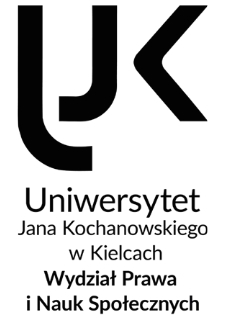Digital Library of the Jan Kochanowski University contains 13 466 digital objects
Object
Title: Prawo autorskie jako przesłanka ograniczenia wolności słowa w świetle Konstytucji RP i standardów międzynarodowych
Creator:
Alternative title:
Abstract:
The subject of this doctoral dissertation is to show that the provisions of copyright, setting the limits of the use of a work without the consent of the authorized entity, do not satisfy the rights of the end user. The rights of the latter are realized in the right to publicly share the work in a non-professional and non-profit manner, and are a consequence of the right to freedom of expression. The use of works more and more often exceeds the limits of fair use, causing redefinition of the work or limitations of copyright and property rights. Such a situation, in turn, makes it necessary to state that the national legislator, despite having the greatest possibilities when it comes to adapting national legislation to international standards, does not meet the requirements in this respect. In the context of the relationship between copyright and the right to freedom of speech, the digital space is an inspiring challenge and arouses the interest of legal sciences. Therefore, the choice of topics related to the relationship of these two laws is a very important area of research. The analyzes both in the doctrine and jurisprudence that have been developed in recent years lead to the conclusion that more attention has been paid to the mechanisms of enforcing freedom of speech and copyright law, because they were the subject of scientific considerations long before the scientific community began to raise the importance of technological progress. Research interest mainly concerns the growing problems and threats to the aforementioned rights, which are global in nature and occur in individual political systems. Therefore, the cross border exchange of solutions becomes a factor that develops comprehensive standards at the international, regional and, as a result, national level, it is one of the most important challenges for the science of law. The analysis in the dissertation was carried out in four chapters. The topics discussed in chapter 1 concern the theoretical characteristics of freedom of speech in the international system of protection of human rights and freedoms. This part of the work covers issues in the field of general concepts of human rights and freedoms. Considerations on this subject have been presented from the perspective of universal, European and national systems for the protection of human rights and freedoms. This chapter also discusses human rights from a historical perspective. Presenting them in this way is to show how individual freedom and the limitation of power exercised by governments have been understood over the centuries. Chapter 2 describes the problem of the relationship between the freedom of expression and the freedoms and rights of other people and copyright as a premise limiting the freedom of speech in the light of international standards. In this part of the dissertation, mainly on the basis of the jurisprudence of the ECtHR and the CJEU, the factors and events that caused tension between copyright and the right to freedom of expression were analysed. Chapter 3 presents copyright as a premise for limiting freedom of speech in the light of the Constitution of the Republic of Poland and legislation. When it comes to freedom of speech and copyright in national law, it should be emphasized that the scope of these rights has been established in the Constitution of the Republic of Poland and the Act of February 4, 1994 on copyright and related rights. In the last chapter, I undertake an in-depth reflection on the trends developed so far in the scope of restrictions on the right to freedom of speech resulting from copyright law. The topic of this chapter mainly concerns the extent to which the right to free speech can be limited in a democratic state based on limiting clauses resulting from copyright enforcement, restrictions on the use of copyrighted works and sanctions based on copyright.
Additional notes:
Identifier:
oai:bibliotekacyfrowa.ujk.edu.pl:10765
Computer catalogue:
Language:
Degree name:
Date obtained:
Degree grantor:
Uniwersytet Jana Kochanowskiego w Kielcach
Supervisor:
Jaskiernia, Jerzy (1950- ) Bator, Karol. Promotor pomocniczy
Reviewer:
Serowaniec, Maciej Sobczak, Jacek
Field:
Scientific disciplines:
Faculty:
Wydział Prawa i Nauk Społecznych
Type:
Access rights:
tylko w Oddziale Informacji Naukowej
Publication status:
Object collections:
Last modified:
Jan 29, 2026
In our library since:
Jun 19, 2024
Number of object content hits:
0
All available object's versions:
https://bibliotekacyfrowa.ujk.edu.pl/publication/11390

